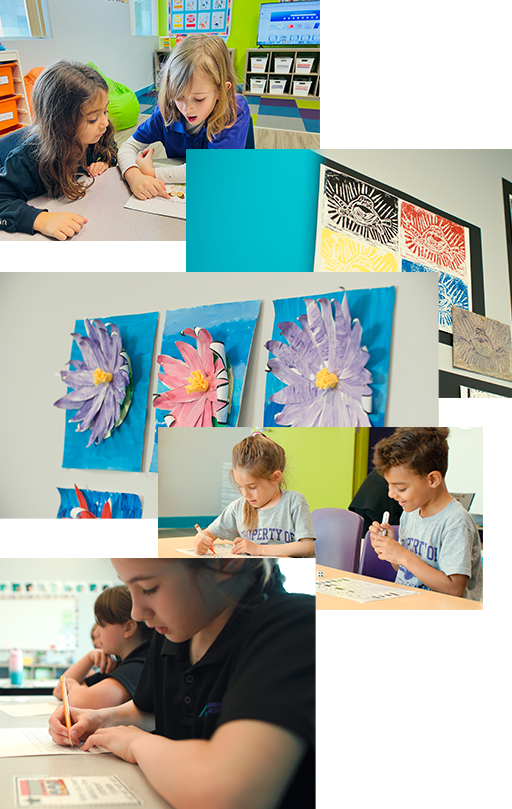Programs
Kindergarten
Limited infant spaces available, call (705) 722-5439 to inquire.

At Urban Village Academy, we understand the importance of your child’s early years.
Everything at their disposal during this stage will help define their learning styles and encourage social development. By exploring and engaging in hands-on opportunities, we help young learners become critical thinkers who are passionate about learning.
This passion and love of learning can then be carried forth with them throughout their educational journey. Our Kindergarten team is comprised of dedicated educators who value play and see it as a platform to accelerate learning.
Our goal is to assess each child’s current learning milestones and determine what opportunities can be provided to help them grow and create a strong foundation for future learning.
As educators, we value pedagogical documentation. Pedagogical documentation is the observation of learning. This helps educators pin point prior learning and helps guide children to develop skills and attitudes, and for educators to devise and present curriculum in a way that is relevant to students.
Our Kindergarten program is based on the “Four Frames of Kindergarten”, provided by the Ontario Ministry of Education. These four frames are designed to support the way a child naturally learns during play and focuses on areas of learning that are critical for development. We use these four areas as the focal points for assessments throughout the year.
Problem Solving & Innovating
Involves children exploring the world around them by engaging their mind and body. Children ask questions, test theories, solve problems and use analytic thinking skills in daily learning opportunities to help them make sense of the world around them.
Self-Regulation & Well-Being
Involves children developing the ability to regulate their emotions, adapt to distractions and gain an understanding of the consequences of their behaviors and establish a strong overall sense of health and wellness.
Demonstrating Literacy & Mathematic Behaviors
Focuses on children learning to use language as a tool in learning. They will learn to use language to help them think critically and begin the initial stages of readiness skills. It also focuses on concepts of numbers and encourages them to analyze and evaluate information.
Belonging & Contributing
Involves helping children gain a sense of connectedness to others as well as developing an understanding of their relationships, their community and their world.
Kindergarteners’ Developmental Stage:
-
1.Cognitive
Children begin to monitor their own behaviour, identify problems, connect consequences to actions, ask questions to clarify their understanding and use all senses to gather information while observing.
-
2.Social
Children begin to sustain play with classmates, to express what they want, say what they are thinking and feeling, identify the emotions of others, exchange ideas and materials during play and share emotions and experiences.
-
3.Emotional
Children begin to see themselves as competent and capable of self-direction, see themselves as a valuable member of the groups, coping with defeats and errors, asking for and accepting help when needed and expressing satisfaction and joy when accomplishing tasks.
-
4.Physical
Children begin to gain the ability to control their movement, increase coordination, speed and endurance, dress without assistance, expressing moods in movement and begin to use open-ended materials to imagine, build and construct.
-
5.Communicate, Language, Literacy
Children begin to communicate, to explore language, to understand non-verbal cues, to ask questions to extend their understanding of words and using facial expression and tone matched to the content of their communication.

 Urban Village Academy
Urban Village Academy